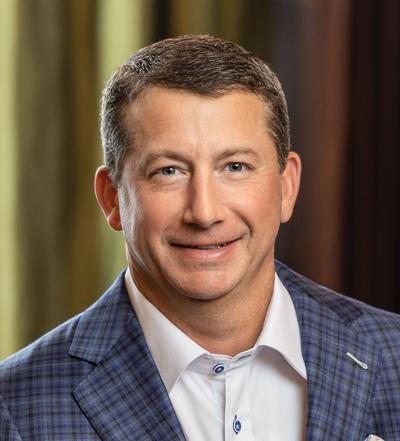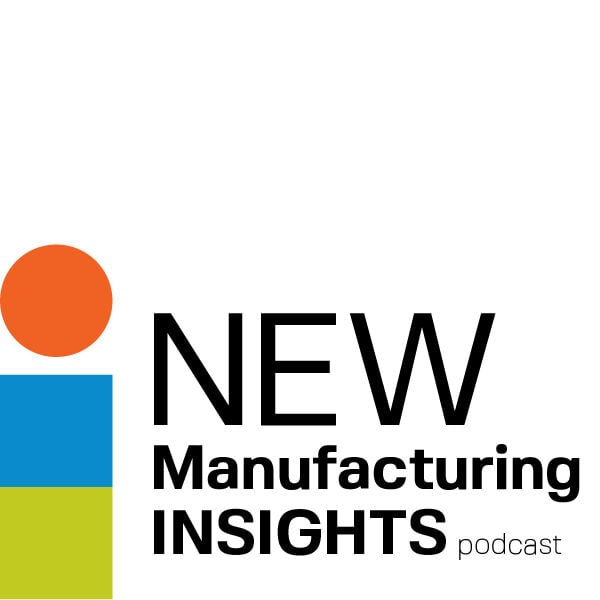
Nikolai
In December, Waupaca Foundry owner Proterial, Ltd. announced the foundry would be sold to Monomoy Capital Partners at the beginning of 2024. (Proterial is the former Hitachi Metals, rebranded when Bain Consortium purchased Hitachi Metals in 2023.) Waupaca Foundry is a leading supplier of cast and machined iron castings and a key employer in Northeast Wisconsin as well as Michigan and Indiana, with about 4,000 people working across five foundry and machining operations. Under new ownership, the foundry will continue to operate with its current team led by President, CEO and COO Mike Nikolai. In February, Nikolai spoke with IOM about what’s coming for the firm under new ownership and how the company is looking to the future.
IOM: Talk a little bit about the sale of Waupaca Foundry to Monomoy. Are there any details of the transaction that you can provide at this time?
Nikolai: When you look through the sale process, we’ve always been a standalone business, even under the Proterial umbrella. I would say we were looked at as a non-core standalone asset, and that’s why (Bain) made the transaction to Monomoy. Their ownership group has ties to our private equity that we had before, KPS Capital. Waupaca had a very good relationship when we were owned by KPS. And we expect them to have the same operational-focused business going forward. So overall, I would say the management team here is pretty happy. First off, there will be no changes, which always makes you happy when you go through a sale process. But they seem to have the same type of values, with continuous improvement. And they’re a very data analytics-driven company, and we have not experienced high-level data analytics for our business. So this is going to be a good journey for us.
A lot of companies are moving in that direction, with a greater focus on technology. Do you anticipate any staff changes in that area?
That’s unique about Monomoy; they have an operations group of about 27 people, which I would say is pretty heavy for a private equity firm. Monomoy is basically an operational-focused private equity. They’re going to have a presence here of three to five people. They told us that they have what’s called boot camps, where they train our associates on how to use the data analytics tools that they bring.
You mentioned there won’t be any changes under the new leadership. Do you anticipate layoffs or any changes to management at some point?
At this time, we don’t anticipate any changes. Over the last two years with Bain, we have positioned ourselves well. And that was one of the reasons Monomoy wanted to purchase Waupaca. I’m not naïve; I’m sure there’ll be some changes. But from what I see, it’s going to be more to leverage growth for the company than to talk about layoffs.
How are you and other leaders there helping to ensure a smooth transition, and how are team members responding so far?
What we try to do is we use what we call “scoop talks,” where I address all the plants. And we communicate with our internal Waupaca mobile app. We normally try to write articles that keep the employees up to speed and engaged. Monomoy wants to do the same thing when their operations team gets on the ground here. They’ll have a town hall based on our format to address any questions our associates have.
As private equity firms become more of a player in our local business environment, what do you think about this trend in the Northeast Wisconsin business community?
This has been my third trend transaction with Waupaca since I have been in management. So we went from strategic ownership with ThyssenKrupp (sold in 2012), to private equity KPS, back to a strategic with Hitachi Metals (in 2014), and now another private equity. In our case, it’s really about growth. Foundries are a pretty investment-focused business. We take over about $40 million a year of investment to keep our operations running. So you do need access through private equity and the debt markets to be able to service that, and that’s really what they unlock.
So what’s happening at the foundry during the next few months?
We’re continuing to focus our business. When we were purchased by Hitachi Metals, that was at the height of our automotive business, and over 62% of our content was automotive. And we’ve been able to move that to where we’re only 38% automotive. We’re very strong in agriculture, construction and we’re making inroads on infrastructure, where we want to continue that growth. And that’s really why Monomoy looked at us, because we were able to diversify our business over the last six years.
Employee attraction and retention has been a big issue for our region, and about 20% of your workforce is in engineering or skilled labor. Are you looking to hire right now? And how are you approaching that?
We would like to increase our baseline level of employees, so we’re continuing to hire. The height of COVID was when we had the most temporary employees, at about 15%. We would like that to probably stabilize between 5 and 10%. And like for everyone in the New North, skilled trades are still tough. Regarding that, we’re trying to grow them from within, because it is a difficult market to try to recruit skilled trades.
Tell us about one of the company’s keys to growth and success.
One of the things that allows Waupaca as a big company to act like a smaller company is related to our custom-built equipment. So if we do have an issue, or overcapacity in one plant, we’re able to quickly switch product to another facility. When we had a fire at our Plant 5 facility, we were able to move all of that work to the other locations and not miss any shipments for the customer. We turned that into a positive because of this unique equipment that we have that. And having the same cadence of equipment across all of our plants allows transfer costs to be very low, and customers do reward us. That’s why generally we were known as an automotive company, and that’s really how we’ve been able to grow our non-automotive business, is with that support.


